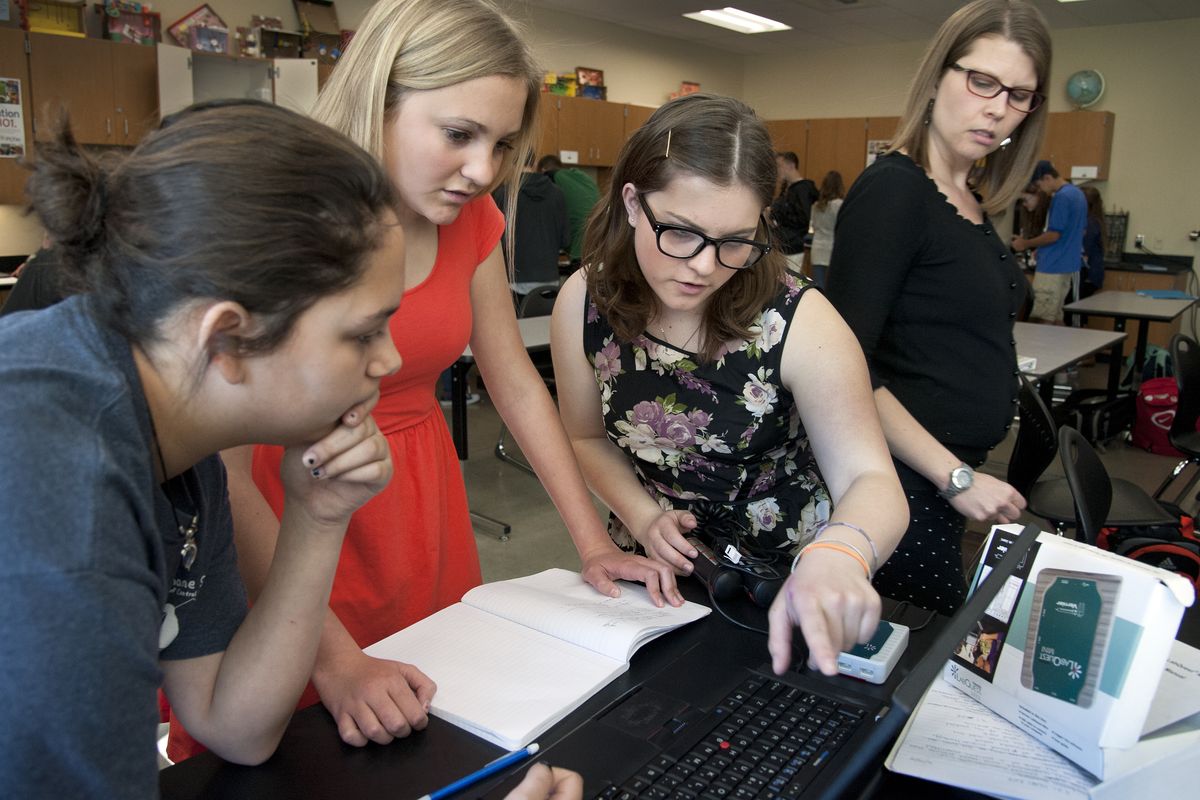Ferris High students set statewide example on biology test
Some officials call for abolishing requirement for graduation

More than 2,000 Washington high school seniors might not graduate if a requirement to pass the state’s biology exam is left intact.
The Washington Board of Education sent a letter recently encouraging lawmakers to abolish the requirement immediately.
The state’s biology test is based on old standards, and it’s unrealistic to expect students to master knowledge on a course they take for one year, wrote Holly Koon, a state board member. Reading, writing and math – the other required tests – are skills students work on throughout their K-12 education.
Bills in the state House of Representatives and Senate calling for an end to the biology test as a graduation requirement didn’t get hearings. Backers say another bill calling for streamlining state tests could be revived.
“We just went overboard on this. I think it’s time to reassess this,” said Rep. Timm Ormsby, a Spokane Democrat.
The spring’s graduating class is the first mandated to meet the science test requirement. As it stands now, students can take the biology end-of-course exam starting their freshman year. If they fail, they get two more chances to pass the test. After that, they can take a course called “Collection of Evidence” to put together a portfolio that demonstrates their knowledge of biology.
A red flag went up when fewer than 34 percent of students statewide passed the “Collection of Evidence” course in their last attempt. Spokane Public Schools’ pass rate was 31.7 percent.
That shows the “requirement does not work in the current graduation assessment landscape,” Koon said.
Ferris High School is a notable exception. The school has the highest end-of-course passing rate in Spokane Public Schools – 85 percent last year – and is being held up as a successful example statewide.
Science teachers there credit a collaborative approach, monthly practice for the exam and after-school study sessions prior to the June test.
“We also let students know what score is expected,” said Darci Hastings, a science teacher. “You can’t win a game unless you know how it’s scored.”
She added, “We focus on big-picture concepts. It’s more scientific thinking than memorization.”
Hastings teaches a biomed class that students and teachers have found boosts biology test scores by almost 10 percentage points.
“I regret not taking the course last year,” said Ferris sophomore Shaylynn Sapp, who passed the biology test her freshman year but scored 30 points lower than her twin sister, Cassie, who took biomed and biology simultaneously last year. Now Shaylynn Sapp is taking the biomed class, too.
Regardless of whether schools can find a way to succeed on the exam, Ormsby thinks “the value is suspect at best.” He admits he’s not a fan of testing anyway, but in this case “it’s creating a real crisis. It’s a real stone around the neck of these kids and their ability to be successful.”
Ormsby added, “There are plenty of ways to measure science. Let’s figure out a balanced and measured way to do that.”